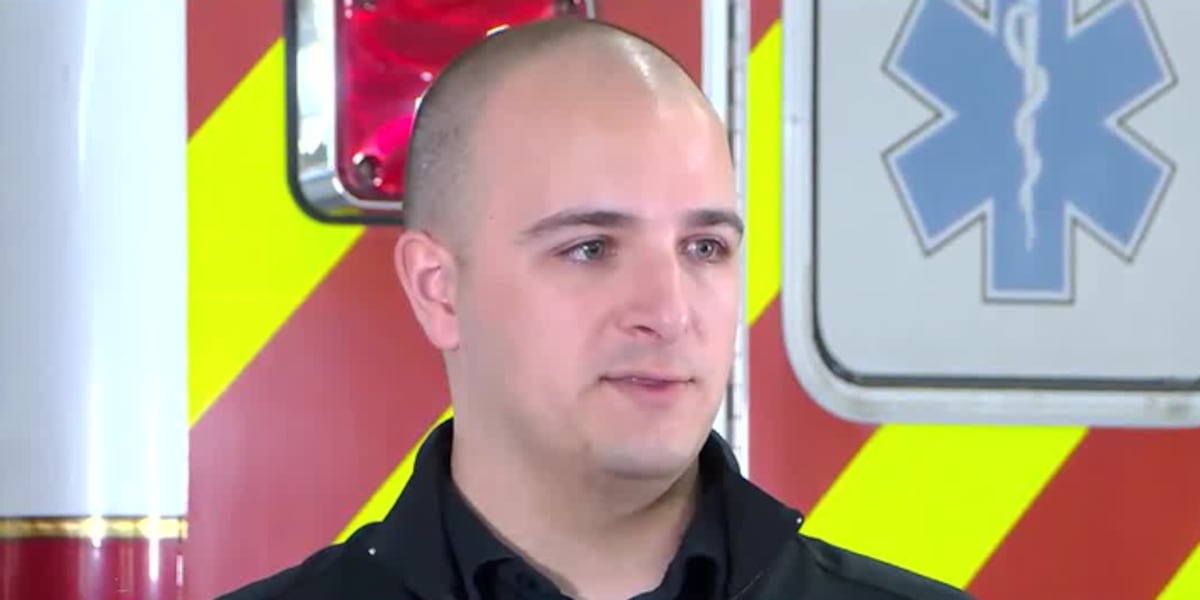
MEDINA COUNTY, Ohio (WOIO) – First responders deal with a tremendous amount of trauma and stress, and that can take a toll on mental health.
But who do they call when they need help?
May is Mental Health Awareness Month. The 19 Solutions Team is taking a look at a local program providing help and hope.
“Those calls stick with you. You’re going to remember them from time to time for the rest of your life, probably,” says Wadsworth Assistant Fire Chief Rich Potter.
In his 28 years as a firefighter, Potter has seen a lot of tragedy, from raging fires to horrific car accidents.
“You don’t want to show weakness but that’s when we’re our most vulnerable,” says Potter.
According to the Ohio Suicide Prevention Foundation, studies show that 85% of first responders have experienced mental health complications.
Depression and PTSD are five times more common for first responders.
“These individuals are out there trying to serve the public, but what are we doing to help them?” asks Gail Houk, of Alternative Paths in Medina County.
For years in Medina County, that question was difficult to answer.
“Cuyahoga County, for example, has a very robust program. Summit County has a very robust program. Medina didn’t have one,” says Michael Savetski, First Response Team Coordinator.
Enter the F1RST: First Responder Support Team.
It’s simple concept, if a first responder is struggling, they reach out to F1RST.
“Hey, we just had this call happen. It kind of hit us in the gut a little bit harder than usual. Would you mind coming out and talking to us a little bit,” explains Savetski.
Within 24 to 72 hours, a team of their own peers arrives to talk it out. All trained and certified in crisis intervention.
“We have law enforcement, we have firefighters, dispatchers, corrections officers as well as different ranks because we find that the trauma that one faces or the decisions that one faces are going to be different from a line firefighter to an incident commander to a dispatcher,” says Brad Turner, a F1RST Team Member and EMS Coordinator for the Cleveland Clinic.
They also provide resources for where to turn next if more help is needed.
Houk has worked with first responders most of her career. She’s seen what can happen without that support.
“You’ll see that it starts to affect people in terms of their relationships. You can see things like increases in use of substances, drinking. You can see social isolation, withdrawal, spending less time with peers,” says Houk.
In the three years since F1RST started in Medina County: “We’ve had about 100 different responders come through our program already or utilize our program or our team, so far in the county. So it’s successful,” says Savetski.
Assistant Chief Potter can tell you first hand, it’s working.
“It takes a little bit of the sting away. It helps with second guessing and you know, did I do everything that I could? Stuff like that,” says Potter.
Potter is trying to help take that sting away for others.
He’s now a trained and certified member of F1RST.
In fact, 52 first responders in Medina County have signed on to help.
“That’s 52 people here throughout the county spread among all agencies that are saying, ‘I want you to call me and talk to me’,” says Turner.
He believes it’s part of the solution to help with mental health.
“I think it’s the first step in a culture change that has been long overdue in public safety,” says Turner.
There’s no cost for a department in Medina County to reach out to F1RST for its services.
It’s run in partnership with the Cleveland Clinic.
Copyright 2024 WOIO. All rights reserved.
